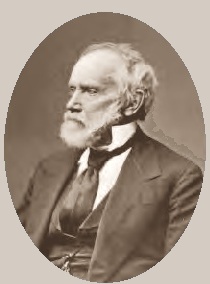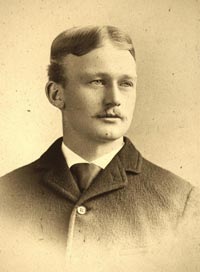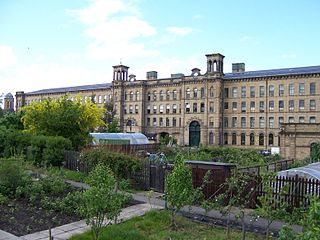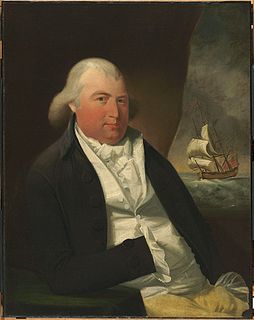
A fiduciary is a person who holds a legal or ethical relationship of trust with one or more other parties. Typically, a fiduciary prudently takes care of money or other assets for another person. One party, for example, a corporate trust company or the trust department of a bank, acts in a fiduciary capacity to another party, who, for example, has entrusted funds to the fiduciary for safekeeping or investment. Likewise, financial advisers, financial planners, and asset managers, including managers of pension plans, endowments, and other tax-exempt assets, are considered fiduciaries under applicable statutes and laws. In a fiduciary relationship, one person, in a position of vulnerability, justifiably vests confidence, good faith, reliance, and trust in another whose aid, advice, or protection is sought in some matter. In such a relation, good conscience requires the fiduciary to act at all times for the sole benefit and interest of the one who trusts.
A fiduciary is someone who has undertaken to act for and on behalf of another in a particular matter in circumstances which give rise to a relationship of trust and confidence.

Sophia Smith founded Smith College in 1870 with the substantial estate she inherited from her father, who was a wealthy farmer, and six siblings.

John Lowell Jr. was an American businessman, early philanthropist, and through his will, founder of the Lowell Institute.
The prudent man rule is based on common law stemming from the 1830 Massachusetts court formulation, Harvard College v. Amory The prudent man rule, written by Massachusetts Justice Samuel Putnam (1768-1853), directs trustees "to observe how men of prudence, discretion and intelligence manage their own affairs, not in regard to speculation, but in regard to the permanent disposition of their funds, considering the probable income, as well as the probable safety of the capital to be invested."

Henry Lee Higginson was an American businessman best known as the founder of the Boston Symphony Orchestra and a patron of Harvard University.
The Texas Tomorrow Fund is a prepaid college investment program operating in Texas.

John Amory Lowell was an American businessman and philanthropist from Boston. He became the sole trustee of the Lowell Institute when his first cousin, John Lowell, Jr. (1799–1836), the Institute's endower, died.

Bartlett v Barclays Bank Trust Co Ltd [1980] 1 Ch 515 in an English trusts law case. In it Brightman J gave a comprehensive discussion of the duties of trustees in connection with companies whose shares are part of the trust property. Although it is common to hear lawyers refer to "the rule in Bartlett v Barclays Bank", the case only restated law that had been accepted since Speight v Gaunt.

United States trust law is the body of law regulating the legal instrument for holding wealth known as a trust.

English trust law concerns the protection of assets, usually when they are held by one party for another's benefit. Trusts were a creation of the English law of property and obligations, and share a subsequent history with countries across the Commonwealth and the United States. Trusts developed when claimants in property disputes were dissatisfied with the common law courts and petitioned the King for a just and equitable result. On the King's behalf, the Lord Chancellor developed a parallel justice system in the Court of Chancery, commonly referred as equity. Historically, trusts have mostly been used where people have left money in a will, or created family settlements, charities, or some types of business venture. After the Judicature Act 1873, England's courts of equity and common law were merged, and equitable principles took precedence. Today, trusts play an important role in financial investment, especially in unit trusts and in pension trusts. Although people are generally free to set the terms of trusts in any way they like, there is a growing body of legislation to protect beneficiaries or regulate the trust relationship, including the Trustee Act 1925, Trustee Investments Act 1961, Recognition of Trusts Act 1987, Financial Services and Markets Act 2000, Trustee Act 2000, Pensions Act 1995, Pensions Act 2004 and Charities Act 2011.

George Parkman, a Boston Brahmin and a member of one of Boston's richest families, was a prominent physician, businessman, and philanthropist, as well the victim in the sensationally gruesome Parkman–Webster murder case, which shook Boston in 1849–1850.

Ernest Amory Codman, M.D., was a pioneering Boston surgeon who made contributions to anaesthesiology, radiology, duodenal ulcer surgery, orthopaedic oncology, shoulder surgery, and the study of medical outcomes.

Learoyd v Whiteley[1887] UKHL 1 is an English trusts law case, concerning the duty of care owed by a trustee when exercising the power of investment.

The Trustee Act 2000 is an Act of the Parliament of the United Kingdom that regulates the duties of trustees in English trust law. Reform in these areas had been advised as early as 1982, and finally came about through the Trustee Bill 2000, based on the Law Commission's 1999 report "Trustees' Powers and Duties", which was introduced to the House of Lords in January 2000. The bill received the Royal Assent on 23 November 2000 and came into force on 1 February 2001 through the Trustee Act 2000 (Commencement) Order 2001, a Statutory Instrument, with the Act having effect over England and Wales.

Speight v Gaunt [1883] UKHL 1 is an English trusts law case, concerning the extent of the duty of care owed by a fiduciary.
Nestle v National Westminster Bank plc [1992] EWCA Civ 12 is an English trusts law case concerning the duty of care when a trustee is making an investment.
Cowan v Scargill [1985] Ch 270 is an English trusts law case, concerning the scope of discretion of trustees to make investments for the benefit of their members. It held that trustees cannot ignore the financial interests of the beneficiaries.
Re Lucking's Will Trusts [1968] 1 WLR 866 is an English trusts law case concerning the duty of care of a trustee, and the requirement to become involved in the governance of companies in which the trust has an interest.

Belchier v Parsons (1754) 96 ER 908 is an English trusts law case, which stands as one of the earliest formulations of the prudent person rule.

John McLean was an American merchant most famous because of his will. The will was the subject of the Massachusetts Supreme Judicial Court case Harvard College v. Amory, which led to the Prudent man rule; left a bequest to Massachusetts General Hospital which led to McLean Hospital being named after him; and established the McLean Professor of Ancient and Modern History, a professorship at Harvard University.















